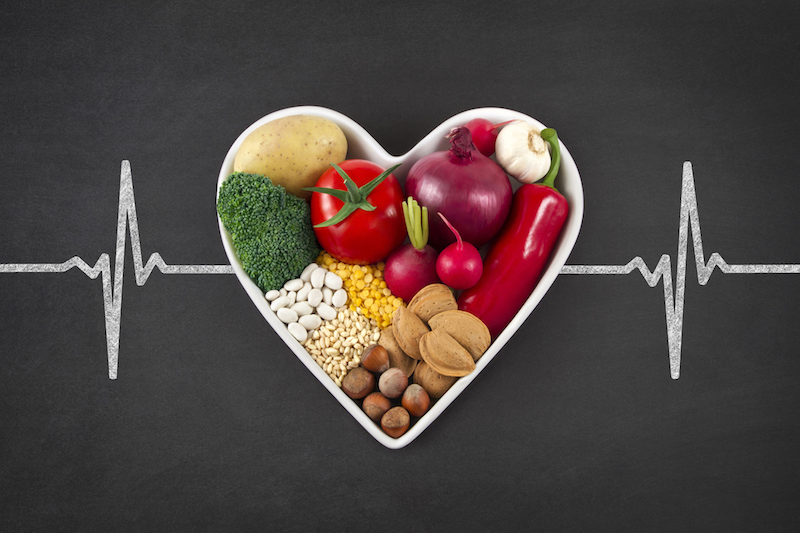Our hearts beat about 100,000 times per day, pumping 1.5 gallons of blood throughout our bodies each minute. Yet for all its amazing power and durability, our heart’s health hinges on what we consume every day. Let’s take a look at some heart-healthy foods for seniors, as well as some foods to avoid.
The Worst Foods for Your Heart
- Energy drinks
- Sugary drinks
- Butter
- Shortening
- Fatty cuts of beef, pork, or lamb
- Fast foods and sweets
- Food high in sodium
- Ultra-processed foods
Energy Drinks
Energy drinks contain a large amount of caffeine, which can exacerbate heart palpitations, cause atrial fibrillation (a chaotically irregular heart beat), or lead to high blood pressure, or potentially a heart attack or stroke.
Sugary Drinks
Sodas, sports drinks, and some fruit juices may also raise a person’s risk of developing heart disease.
Saturated and Trans Fat
Butter, shortening, and fatty meats contain two types of harmful fats: trans fats and saturated fats. Both of these types of fats tend to increase the amount of cholesterol in our blood, which increases the risk of heart disease.
Fast Food and Sweets
Fast foods are also high in saturated fats, as well as salt and calories.
Sweet foods can exceed daily sugar recommendations. Sugar increases a type of fat called triglycerides in your bloodstream as well as fat tissue, which may increase your risk of heart disease.
Salt
Too much sodium can raise blood pressure, and high blood pressure is a major risk for heart disease and stroke.
Ultra-processed Foods
Ultra-processed foods (packaged snacks, sugary cereals, drinks, hot dogs, cold cuts, packaged cookies, cakes, etc.) may leave more people prone to heart disease. In addition to being high in calories and harmful fats, they are also low in fiber, vitamins, and minerals that help prevent heart disease.
Heart-Healthy Foods to Eat
Fruits and Vegetables
- Carrots
- Sweet potatoes
- Avocado
- Peppers
- Tomatoes
- Leafy greens—kale, spinach, cabbage, Romaine lettuce, Swiss chard
- Asparagus
- Beets
- Brussels sprouts
- Canned vegetables that are low in sodium and not artificially sweetened
- Apples
- Oranges
- Bananas
- Pears
- Peaches
- Berries—blueberries, blackberries, strawberries, raspberries
A study showed that eating two servings of fruit and three servings of vegetables per day may potentially lower your risk of cardiovascular disease by as much as 12 percent.
These foods contain many healthful nutrients, especially fiber, which seems to effectively lower cholesterol and blood pressure while improving blood vessel functions.
Healthy Sources of Protein
- Skinless chicken or turkey breasts
- Beans—black, garbanzo, red, navy, kidney, etc.
- Eggs
- Lentils
- Salmon
- Mackerel
- Tuna fish
- Shellfish—clams, oysters, scallops, mussels
Yogurt can also be a good source of protein, but choose carefully. Avoid brands that have added sugar on the ingredient list (often listed as sucrose, high-fructose corn syrup, cane sugar, or agave nectar).
Unsalted Nuts and Seeds
- Walnuts
- Almonds
- Pistachios
- Cashews
- Peanuts
- Pecans
- Macadamia nuts
- Brazil nuts
- Seeds—chia, flaxseeds, sunflower, sesame, pumpkin
Nuts are a rich source of plant protein, have plenty of dietary fiber, and are high in heart-healthy mono-and polyunsaturated fats (including plant omega-3 fatty acids.) They are also rich in vitamin E, which has shown to significantly lower the risk of heart disease.
Whole Grains
- Whole oats
- Whole-grain wheat products—in breads, pasta, English muffins
- Couscous
- Quinoa
- Brown rice
According to the National Heart, Lung, and Blood Institute, researchers are reporting new evidence that greater whole grain consumption is associated with a reduced risk of cardiovascular disease, particularly in middle-to-older aged adults.
Researchers found that study participants who ate at least three servings of whole grains daily had lower blood pressure and blood sugar levels than those who didn’t.
Food Choices; How Much of What
What and how much you choose to consume are key to your heart health. Balancing heart-healthy foods with the occasional indulgence depends upon a number of factors including age, weight, sex, health conditions, levels of exercise, and your body’s reaction to foods.
Food is enjoyable, but so is a healthy life. Consult with your physician or a registered dietitian for more information that is specific to you. These professionals can help you prepare a plan that you can follow to help ensure a healthier heart and a long life.
| Whether in independent living, assisted living, memory care, or skilled nursing, Bethesda offers the right amenities, services, programming, and staff to make every day full of purpose. See for yourself and tour our independent living communities, including Bethesda Barclay House – Clayton, Bethesda Gardens – Kirkwood, Bethesda Orchard – Webster Groves, Bethesda Terrace – South County, Village North Retirement Community – Florissant, and The Oaks at Bethesda Villas – Kirkwood/Webster. |
Want to find out more?
If you’d like to stay up to date with Bethesda Health Group, sign up here to receive our blog and newsletters!
"*" indicates required fields
Related Articles
Want to find out more?
If you’d like to stay up to date with Bethesda Health Group, sign up here to receive our blog and newsletters!
"*" indicates required fields



